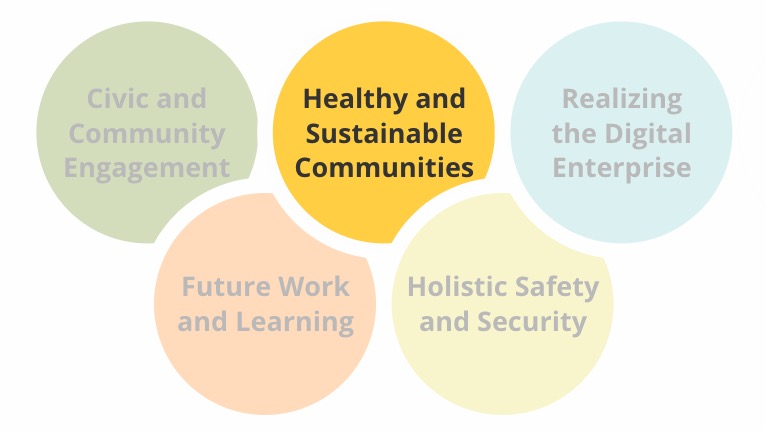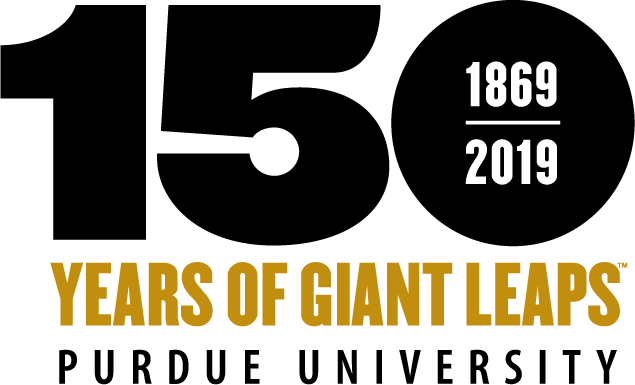
Purdue Polytechnic researchers are working to develop and apply technologies that enable and support healthy, sustainable communities. Through detailed, systems-level thinking, research projects aim to find solutions within or between transportation systems, the built environment, applied engineering, materials science, Internet of Things (IoT) and environmental quality.
Faculty are applying expertise in advanced materials, autonomous systems, building systems, energy and power, health and infrastructure applications, manufacturing and processes, sustainability, and transportation in their projects.
“We want to produce unique solutions that improve our health and increase our communities’ sustainability,” said Mary Johnson, associate professor of aviation technology. “We hope our collaboration will touch many aspects of society.”
.jpg)
Current projects
Projects include a plant-based filter for indoor air, smart food storage, and improvements to the use of aluminum in manufacturing.
 The Biowall creates cleaner indoor air by incorporating a plant-based filter into a building’s heating, ventilation and air conditioning (HVAC) system. Currently being tested in a residential setting at West Lafayette’s ReNEWW House, the system has the potential for commercialization.
The Biowall creates cleaner indoor air by incorporating a plant-based filter into a building’s heating, ventilation and air conditioning (HVAC) system. Currently being tested in a residential setting at West Lafayette’s ReNEWW House, the system has the potential for commercialization.
Bill Hutzel, professor of mechanical engineering technology, notes that the Biowall’s technology has been improving since its 2011 inception. “It has become increasingly automated in terms of airflow, lighting and water. We have a much better handle on how to maintain healthy and thriving plants and on the Biowall’s air-cleaning characteristics.”
Sangjun Eom, graduate research assistant in engineering technology, and Richard Voyles, professor of electrical and computer engineering technology, are working to improve food safety and quality by connecting food storage products to wireless networks in smart homes. They’re working with Tupperware Brands Corporation to design a product which can monitor the food it’s storing, report on its inventory levels, and change environmental conditions as needed to preserve it longer.
“If the humidity or temperature need to be adjusted, Smart Tupperware will be able to send a message to your smart thermostat or smart refrigerator,” Eom said.
Xingtao Liu, a graduate teaching assistant in the School of Engineering Technology, uses electron microscopy to study the microstructures of aluminum. When aluminum and other metals are mixed during casting in a process known as grain refinement, the alloys produced have different properties.
“You might think you just put aluminum in the furnace, melt it, and pour it out,” said Liu, “but nearly all different processing parameters during this simple process affect its microstructure.”
With an improved understanding of the grain refinement process, the casting industry may create fewer defects, improve product quality and reduce energy usage during manufacturing.
Additional information:
